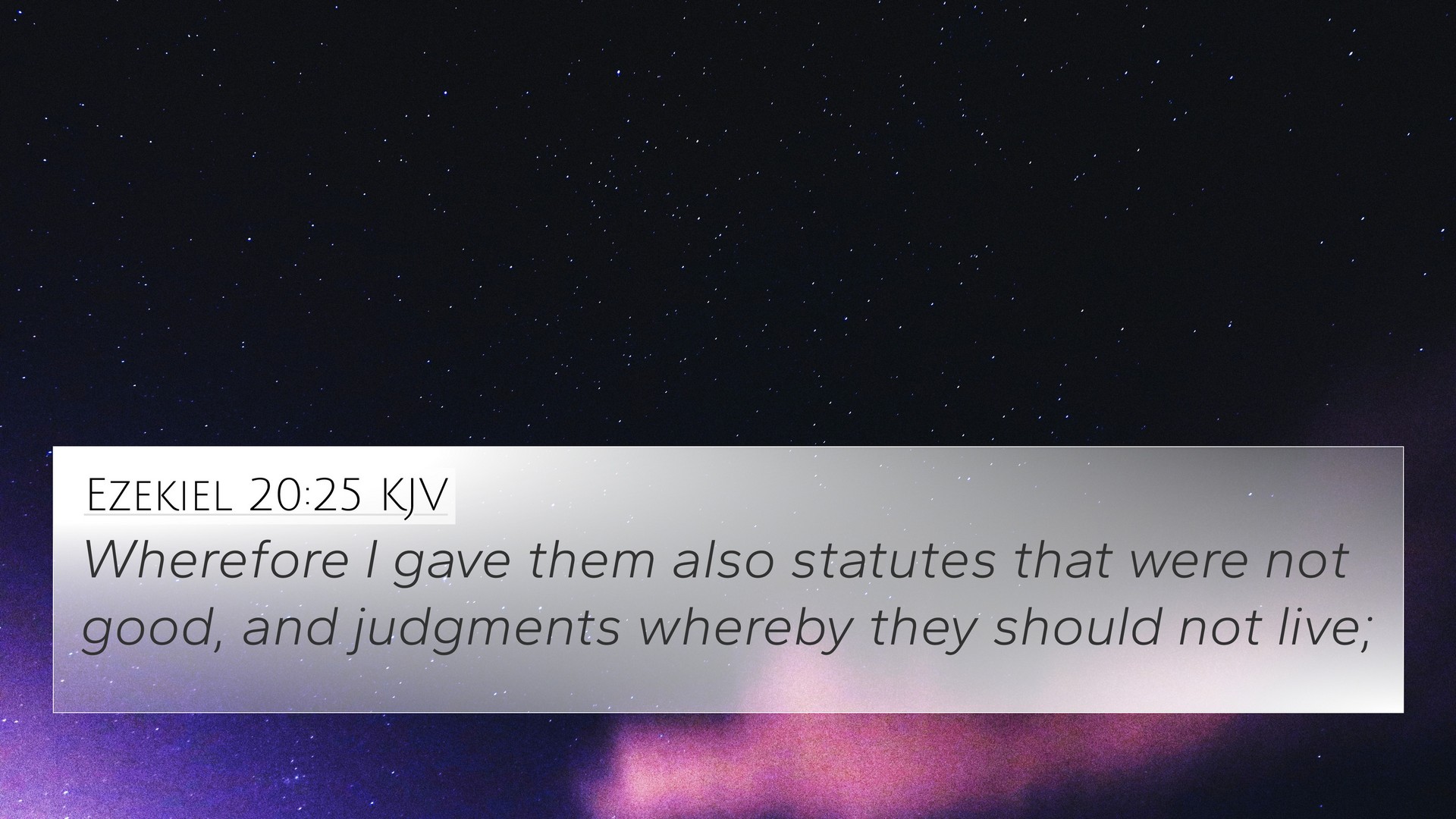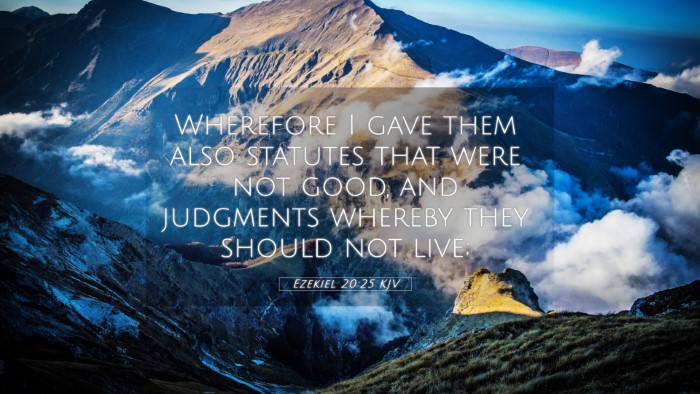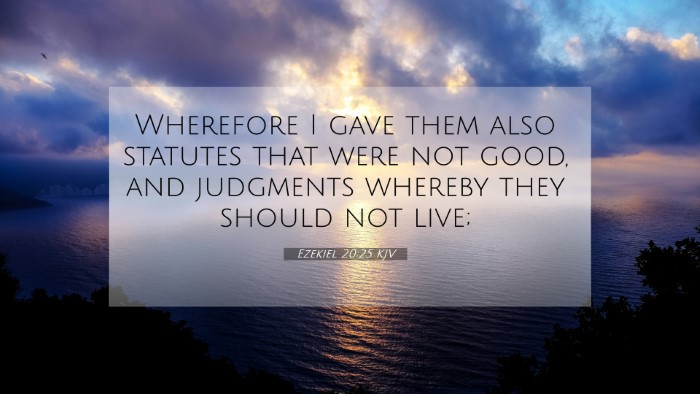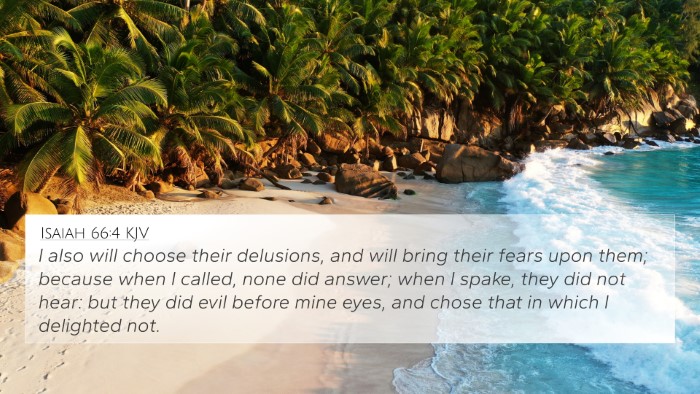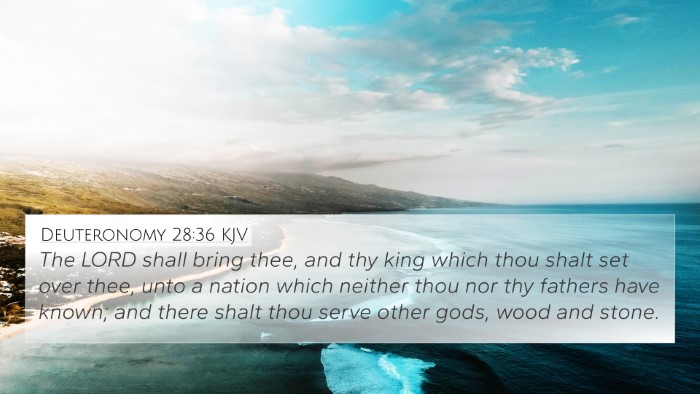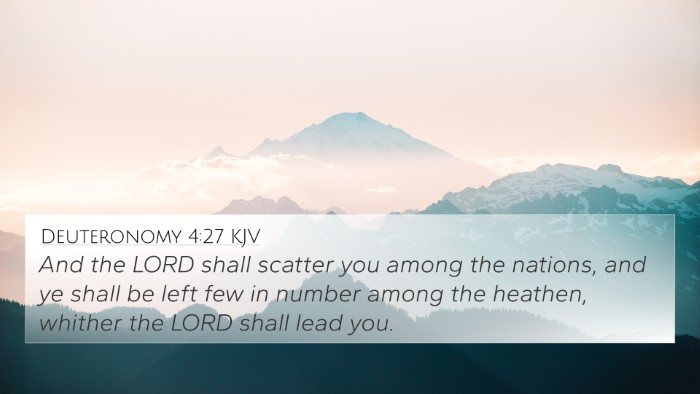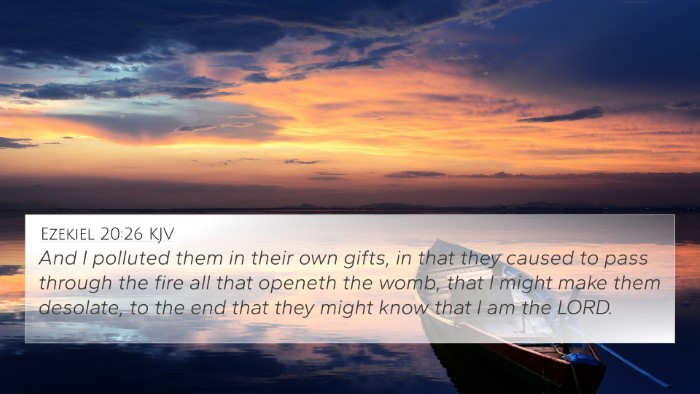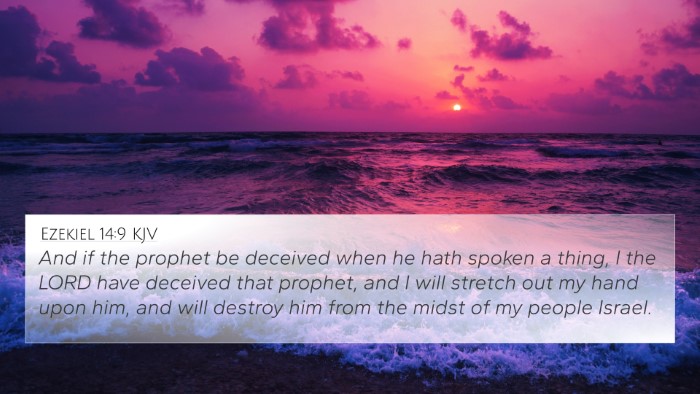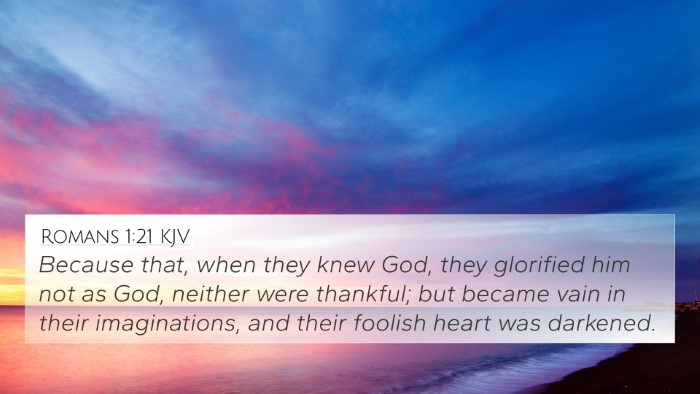Ezekiel 20:25 - Commentary and Insights
Verse Text: "Wherefore I gave them also statutes that were not good, and judgments whereby they should not live."
Summary of Ezekiel 20:25 Meaning: This verse highlights a complex interaction between divine judgment and human disobedience. In the context of God's covenant with Israel, the passage illustrates how, in response to their persistent rebellion, God permitted them to adopt sinful practices and unjust laws. This was not an endorsement of these statutes but rather a consequence of their rejection of God's commandments.
Interpretative Insights from Public Domain Commentaries
- Matthew Henry: Henry points out that God allowed Israel to follow their own corrupt ways as a form of judgment. He reflects on the notion that these statutes were not beneficial but served as a reflection of their hardened hearts. God’s permission for such choices underscores the severity of their disobedience.
- Albert Barnes: Barnes discusses the covenant context and emphasizes that God gave them "statutes that were not good" as a way of indicating their departure from true obedience. He is adamant in stating that while God's statutes are inherently good, their willingness to stray led them into harmful practices that would ultimately bring about spiritual death.
- Adam Clarke: Clarke provides a historical perspective, noting that these "not good" statutes are representative of the practices adopted from surrounding nations that contradicted God's holiness. He argues this verse illustrates that moral decline often results from rejecting divine guidance.
Bible Verse Cross-References
Understanding Ezekiel 20:25 becomes deeper when we cross-reference it with other Scripture passages:
- Romans 1:24-25: Reflects on God giving people over to their lusts because they exchanged the truth of God for a lie.
- Isaiah 66:4: God speaks of allowing delusions and falsehoods to those who delight in their disobedience.
- Deuteronomy 32:15: A reminder that Israel, when prosperous, turned away from God, leading to harmful choices.
- Jeremiah 7:24-26: Illustrates Israel's historical pattern of disobedience, ignoring God's commands.
- Galatians 6:7: Emphasizes the principle that one reaps what one sows, correlating to the consequences of turning from God's statutes.
- Ephesians 4:18: Speaks to the futility of mind when separated from the life of God, relevant to the theme of spiritual blindness.
- Hosea 4:6: God's lament over His people lacking knowledge due to rejecting His Word.
Thematic Bible Verse Connections
The themes of disobedience, judgment, and divine allowance manifest throughout Scripture. This verse invites a comparative Bible verse analysis highlighting how God interacts with humanity in their sin.
- Sovereignty of God: God remains sovereign, even when allowing people to experience the consequences of their choices (Proverbs 14:12).
- Judgment and Mercy: The tension between divine judgment and the potential for future repentance (Luke 13:3).
- The Role of Statutes: Understanding the purpose of God's laws as a guide for holy living (Psalms 119:105).
Cross-Referencing Biblical Texts for Deeper Understanding
Utilizing tools for Bible cross-referencing can enhance comprehension, bringing clarity to complex verses like Ezekiel 20:25. The importance of linking Bible scriptures lies in contextual interpretation.
Conclusion
In Ezekiel 20:25, we see a profound reflection on human nature and divine sovereignty. The interpretations from respected commentaries enrich our understanding of God’s relationship with His people and the consequences of their choices. As we engage in cross-referencing biblical texts, we uncover layers of meaning that illuminate our path toward spiritual truth.
